- Home
- Daphne Du Maurier
The Apple Tree: a short novel & several long stories Page 5
The Apple Tree: a short novel & several long stories Read online
Page 5
Then he looked at me, in a way half puzzled, half wise, and said, "It's odd, your talking in this way. Because by rights you should understand Anna's feelings more than I do. You were always the one with mountain fever. You were the one, in old climbing days, to have your head in the clouds and quote to me—
'The world is too much with us; late and soon,
Getting and spending, we lay waste our powers."'
I remember getting up and going over to the window and looking out over the foggy street, down to the embankment. I said nothing. His words had moved me very much. I could not answer them. And I knew, in the depths of my heart, why I hated the story of Monte Verità and wanted the place to be destroyed. It was because Anna had found her Truth, and I had not…
That conversation between Victor and myself made, if not a division in our friendship, at least a turning point. We had reached a half-way mark in both our lives. He went back to his home in Shropshire, and later wrote to me that he intended making over the property to a young nephew, still at school, and during the next few years intended having the lad to stay with him in the holidays, to get him acquainted with the place. After that, he did not know. He would not commit himself to plans. My own future, at this time, was full with change. My work necessitated living in America for a period of two years.
Then, as it turned out, the whole tenor of the world became disrupted. The following year was 1914.
Victor was one of the first to join up. Perhaps he thought this would be his answer. Perhaps he thought he might be killed. I did not follow his example until my period in America was over. It was certainly not my answer, and I disliked every moment of my army years. I saw nothing of Victor during the whole of the war; we fought on different fronts, and did not even meet on leave. I did hear from him, once. And this is what he said:
In spite of everything, I have managed to get to Monte Verità each year, as I promised to do. I stayed a night with the old man in the village, and climbed on to the mountain top the following day. It looked exactly the same. Quite dead, and silent. I left a letter for Anna beneath the wall and sat there, all the day, looking at the place, feeling her near. I knew she would not come to me. The next day I went again, and was overjoyed to find a letter from her in return. If you can call it a letter. It was cut on flat stone, and I suppose this is the only method they have of communication. She said she was well, and strong, and very happy. She gave me her blessing, and you also. She told me never to be anxious for her. That was all. It was, as I told you at the nursing-home, like a spirit message from the dead. With this I have to be content, and am. If I survive this war, I shall probably go out and live somewhere in that country, so that I can be near her, even if I never see her again, or hear nothing of her but a few words scrawled on a stone once a year.
Good luck to yourself, old fellow. I wonder where you are.
Victor
When the Armistice came, and I got myself demobilised and set about the restoration of my normal life, one of the first things I did was to enquire for Victor. I wrote to him, in Shropshire. I had a courteous reply from the nephew. He had taken over the house and the estate. Victor had been wounded, but not badly. He had now left England and was somewhere abroad, either in Italy or Spain, the nephew was not sure which. But he believed his uncle had decided to live out there for good. If he had news of him, he would let me know. No further news came. As to myself I decided I disliked post-war London and the people who lived there. I cut myself loose from home ties too, and went to America.
I did not see Victor again for nearly twenty years.
It was not chance that brought us together again. I am sure of that. These things are predestined. I have a theory that each man's life is like a pack of cards, and those we meet and sometimes love are shuffled with us. We find ourselves in the same suit, held by the hand of Fate. The game is played, we are discarded, and pass on. What combination of events brought me to Europe again at the age of fifty-five, two or three years before the second world war, does not matter to this story. It so happened that I came.
I was flying from one capital city to another — the names of both are immaterial — and the aeroplane in which I travelled made a forced landing, luckily without loss of life, in desolate mountainous country. For two days the crew and passengers, myself amongst them, held no contact with the outer world. We camped in the partially wrecked machine and waited for rescue. This adventure made headlines in the world press at the time, even taking precedence, for a few days, over the simmering European situation.
Hardship, for those forty-eight hours, was not acute. Luckily there were no women or children passengers travelling, so we men put the best face on it we could, and waited for rescue. We were confident that help would reach us before long. Our wireless had functioned until the moment of the forced landing, and the operator had given our position. It was all a matter of patience, and of keeping warm.
For my part, with my mission in Europe accomplished and no ties strong enough back in the States to believe myself anxiously awaited, this sudden plunging into the sort of country that years ago I had most passionately loved was a strange experience. I had become so much a man of cities, and a creature of comfort. The high pulse of American living, the pace, the vitality, the whole breathless energy of the New World, had combined to make me forget the ties that still bound me to the Old.
Now, looking about me in the desolation and the splendour, I knew what I had lacked all these years. I forgot my fellow-travellers, forgot the grey fuselage of the crippled 'plane — an anachronism, surely, amid the wilderness of centuries — and forgot too my grey hair, my heavy frame, and all the burden of my five-and-fifty years. I was a boy again, hopeful, eager, seeking an answer to eternity. Surely it was there, waiting, beyond the further peaks. I stood there, incongruous in my city clothes, and the mountain fever raced back into my blood.
I wanted to get away from the wrecked 'plane and the pinched faces of my companions; I wanted to forget the waste of the years between. What I would have given to be young again, a boy, and, reckless of the consequences, set forth towards those peaks and climb to glory. I knew how it would feel, up there on the higher mountains. The air keener and still more cold, the silence deeper. The strange burning quality of ice, the penetrating strength of the sun, and that moment when the heart misses a beat as the foot, momentarily slipping on the narrow ledge, seeks safety; the hand's clutch to the rope.
I gazed up at them, the mountains that I loved, and felt a traitor. I had betrayed them for baser things, for comfort, ease, security. When rescue came to me and to my fellow-travellers, I would make amends for the time that had been lost. There was no pressing hurry to return to the States. I would take a vacation, here in Europe, and go climbing once again. I would buy proper clothes, equipment, set myself to it. This decision taken, I felt light-hearted, irresponsible. Nothing seemed to matter any more. I returned to my little party, sheltering beside the 'plane, and laughed and joked through the remaining hours.
Help reached us on the second day. We had been certain of rescue when we had sighted an aeroplane, at dawn, hundreds of feet above us. The search party consisted of true mountaineers and guides, rough fellows but likeable. They had brought clothing, kit and food for us, and were astonished, they admitted, that we were all in condition to make use of them. They had thought to find none of us alive.
They helped us down to the valley in easy stages, and it took us until the following day. We spent the night encamped on the north side of the great ridge of mountains that had seemed to us, beside the useless 'plane, so remote and so inaccessible. At daybreak we set forth again, a splendid clear day, and the whole of the valley below our camp lay plain to the eye. Eastward the mountain range ran sheer, and as far as I could judge impassable, to a snow-capped peak, or possibly two, that pierced the dazzling sky like the knuckles on a closed hand.
I said to the leader of the rescue expedition, just as we were starting out on the descent, "I used
to climb much, in old days, when I was young. I don't know this country at all. Do many expeditions come this way?"
He shook his head. He told me conditions were difficult. He and his companions came from some distance away. The people in the valley to the eastward there were backward and ignorant; there were few facilities for tourists or for strangers. If I cared about climbing he could take me to other places, where I should find good sport. It was already rather late in the year, though, for expeditions.
I went on looking at that eastward ridge, remote and strangely beautiful.
"What do they call them," I said, "those twin peaks, to the east?"
He answered, "Monte Verità."
I knew then what had brought me back to Europe…
We parted, my fellow travellers and I, at a little town some twenty miles from the spot where the aeroplane had crashed. Transport took them on to the nearest railway line, and to civilization. I remained behind. I booked a room at the small hotel and deposited my luggage there. I bought myself strong boots, a pair of breeches, a jerkin, and a couple of shirts. Then I turned my back upon the town and climbed.
It was, as the guide had told me, late in the year for expeditions. Somehow I did not care. I was alone, and on the mountains once again. I had forgotten how healing solitude could be. The old strength came back to my legs and to my lungs, and the cold air bit into the whole of me. I could have shouted with delight, at fifty-five. Gone was the turmoil and the stress, the anxious stir of many millions; gone were the lights, and the vapid city smells. I had been mad to endure it for so long.
In a mood of exaltation I came to the valley that lies at the be eastern foot of Monte Verità. It had not changed much, it seemed to me, from the description Victor gave of it, those many years ago before the war. The little town was small and primitive, the people dull and dour. There was a rough sort of inn — one could not grace it by the name of hotel — where I proposed to stay the night.
I was received with indifference, though not discourtesy. After supper I asked if the track was still passable to the summit of Monte Verità. My informant behind his bar — for bar and café were in one, and I ate there, being the only visitor — regarded me without interest as he drank the glass of wine I offered him.
"It is passable, I believe, as far as the village. Beyond that I do not know," he said.
"Is there much coming and going between your people in the valley here and those in the village on the mountain?" I asked.
"Sometimes. Perhaps. Not at this time of year," he answered.
"Do you ever have tourists here?"
"Few tourists. They go north. It is better in the north."
"Is there any place in the village where I could sleep tomorrow night?"
"I do not know."
I paused a moment, watching his heavy sullen face, then I said to him, "And the 'sacerdotesse', do they still live on the rock-face on the summit of Monte Verità?"
He started. He turned his eyes full upon me, and leant over the bar. "Who are you, then? What do you know of them?"
"Then they do exist still?" I said.
He watched me, suspicious. Much had happened to his country in the past twenty years, violence, revolution, hostility between father and son, and even this remote corner must have had its share. It may have been this that made reserve.
"There are stories," he said, slowly. "I prefer not to mix myself up in such matters. It is dangerous. One day there will be trouble."
"Trouble for whom?"
"For those in the village, for those who may live on Monte Verità—I know nothing of them — for us here in the valley. I do not know. If I do not know, no harm can come to me."
He finished his wine, and cleaned his glass, and wiped the bar with a cloth. He was anxious to be rid of me.
"At what time do you wish for your breakfast in the morning?" he said.
I told him seven, and went up to my room.
I opened the double windows and stood out on the narrow balcony. The little town was quiet. Few lights winked in the darkness. The night was clear and cold. The moon had risen and would be full tomorrow or the day after. It shone upon the dark mountain mass in front of me. I felt oddly moved, as though I had stepped back into the past. This room, where I should pass the night, might have been the same one where Victor and Anna slept, all those years ago, in the summer of 1913. Anna herself might have stood here, on the balcony, gazing up at Monte Verità, while Victor unconscious of the tragedy so few hours distant, called to her from within.
And now, in their footsteps, I had come to Monte Verità.
The next morning I took my breakfast in the café-bar, and my landlord of the night before was absent. My coffee and bread were brought me by a girl, perhaps his daughter. Her manner was quiet and courteous, and she wished me a pleasant day.
"I am going to climb," I said, "the weather seems set fair. Tell me, have you ever been to Monte Verità?"
Her eyes flickered away from mine instantly.
"No," she said, "no, I have never been away from the valley."
My manner was matter-of-fact, and casual. I said something about friends of mine having been here, some while ago — I did not say how long — and that they had climbed to the summit, and had found the rock-face there, between the peaks, and had been much interested to learn about the sect who lived enclosed within the walls.
"Are they still there, do you know?" I asked, lighting a cigarette, elaborately at ease.
She glanced over her shoulder nervously, as though conscious that she might be overheard.
"It is said so," she answered. "My father does not discuss it before me. It is a forbidden subject to young people."
I went on smoking my cigarette.
"I live in America," I said, "and I find that there, as in most places, when the young people get together there is nothing they like discussing so well as forbidden subjects."
She smiled faintly but said nothing.
"I dare say you and your young friends often whisper together about what happens on Monte Verità," I said.
I felt slightly ashamed of my duplicity, but I felt that this method of attack was the most likely one to produce information.
"Yes," she said, "that is true. But we say nothing out loud. But just lately…" Once again she glanced over her shoulder, and then resumed, her voice pitched lower, "A girl I knew quite well, she was to marry shortly, she went away one day, she has not come back, and they are saying she has been called to Monte Verità."
"No one saw her go?"
"No. She went by night. She left no word, nothing."
"Could she not have gone somewhere quite different, to a large town, to one of the tourist centres?"
"It is believed not. Besides, just before, she had acted strangely. She had been heard talking in her sleep about Monte Verità."
I waited a moment, then continued my enquiry, still nonchalant, still casual.
"What is the fascination in Monte Verità?" I asked. "The life there must be unbearably harsh, and even cruel?"
"Not to those who are called," she said, shaking her head. "They stay young always, they never grow old."
"If nobody has ever seen them, how can you know?"
"It has always been so. That is the belief. That is why here, in the valley, they are hated and feared, and also envied. They have the secret of life, on Monte Verità."
She looked out of the window towards the mountain. There was a wistful expression in her eyes.
"And you?" I said. "Do you think you will ever be called? "I am not worthy," she said. "Also, I am afraid."
She took away my coffee and offered me some fruit.
"And now," she said, her voice still lower, "since this last disappearance, there is likely to be trouble. The people are angry, here in the valley. Some of the men have climbed to the village and are trying to rouse them there, to get force of numbers, and then they will attack the rock. Our men will go wild. They will try to kill those who live ther
e. Then there will be more trouble, we shall get the army here, there will be enquiries, punishment, shooting; it will all end badly. So it is not pleasant at the moment. Everyone goes about afraid. Everybody is whispering in secret."
A footstep outside sent her swiftly behind the bar. She busied herself there, her head low, as her father came into the room. He glanced at both of us, suspiciously. I put out my cigarette and rose from the table.
"So you are still intent to climb? " he asked me.
"Yes," I said. "I shall be back in a day or two."
"It would be imprudent to stay there longer," he said.
"You mean the weather will break?"
"The weather will break, yes. Also, it might not be safe."
"In what way might it not be safe?"
"There may be disturbance. Things are unsettled just now. Men are out of temper. When they are out of temper, they lose their heads. And strangers, foreigners, can come to harm at such a time. It would be better if you gave up your idea of climbing Monte Verità and turned northwards. There is no trouble there."
"Thank you. But I have set my heart on climbing Monte Verità."
He shrugged his shoulders. He looked away from me.
"As you will," he said, "it is not my affair."
I walked out of the inn, down to the street, and crossing the little bridge above the mountain stream I set my face to the track through the valley that led me to the eastern face of Monte Verità.
At first the sounds from the valley were distinct. The barking of dogs, the tinkle of cow bells, the voices of men calling to one another, all these rose clearly to me in the still air. Then the blue smoke from the houses merged and became one misty haze, and the houses themselves took on a toy-town quality. The track wound above me and away, ever deeper into the heart of the mountain itself, until by midday the valley was lost in the depths and I had no other thought in my mind but to climb upwards, higher, always higher, win my way beyond that first ridge to the left, leave it behind me and gain the second, forget both in turn to achieve the third, steeper yet and overshadowed. My progress was slow, with untuned muscles and imperfect wind, but exhilaration of spirit kept me going and I was in no way tired, rather the reverse. I could have gone on for ever.

 Jamaica Inn
Jamaica Inn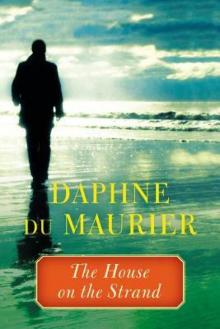 The House on the Strand
The House on the Strand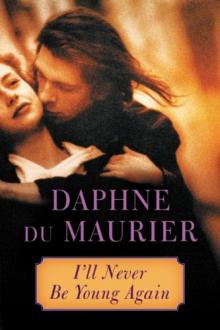 I'll Never Be Young Again
I'll Never Be Young Again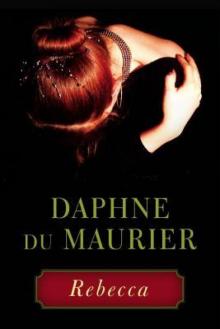 Rebecca
Rebecca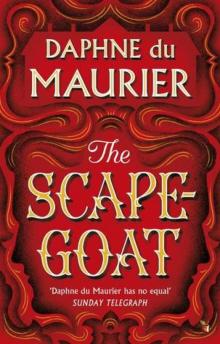 The Scapegoat
The Scapegoat The Birds and Other Stories
The Birds and Other Stories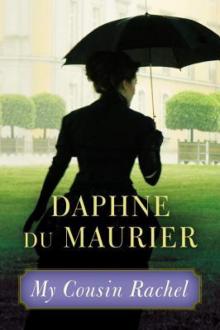 My Cousin Rachel
My Cousin Rachel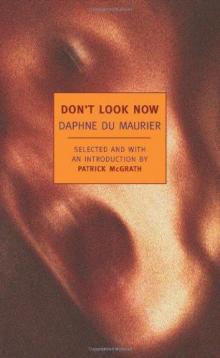 Don't Look Now
Don't Look Now Mary Anne
Mary Anne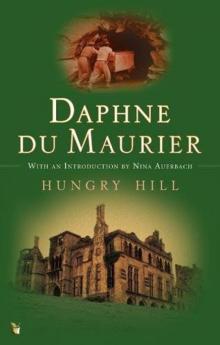 Hungry Hill
Hungry Hill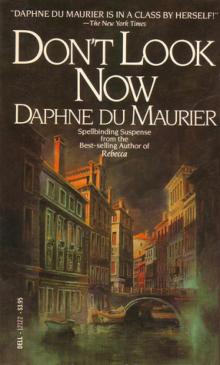 Don't Look Now and Other Stories
Don't Look Now and Other Stories The Loving Spirit
The Loving Spirit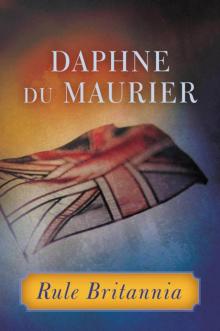 Rule Britannia
Rule Britannia The King's General
The King's General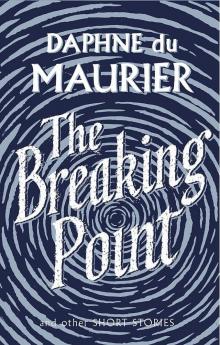 The Breaking Point: Short Stories
The Breaking Point: Short Stories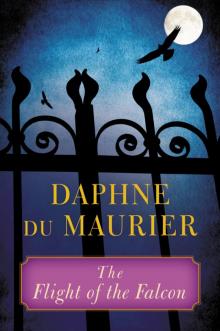 The Flight of the Falcon
The Flight of the Falcon The Apple Tree: a short novel & several long stories
The Apple Tree: a short novel & several long stories The Breaking Point
The Breaking Point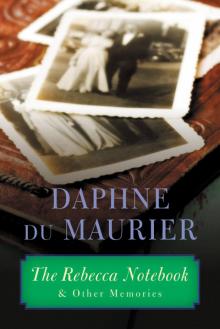 The Rebecca Notebook
The Rebecca Notebook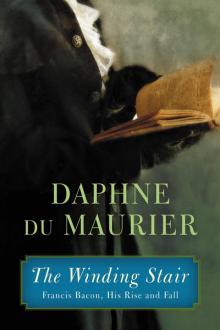 The Winding Stair: Francis Bacon, His Rise and Fall
The Winding Stair: Francis Bacon, His Rise and Fall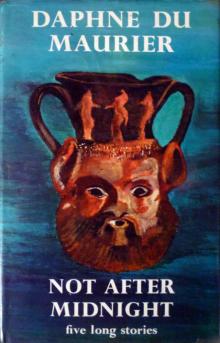 Not After Midnight & Other Stories
Not After Midnight & Other Stories The Doll
The Doll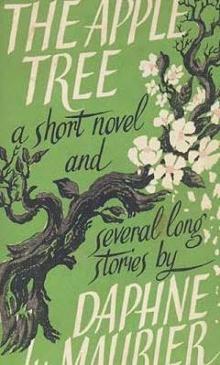 The Apple Tree
The Apple Tree